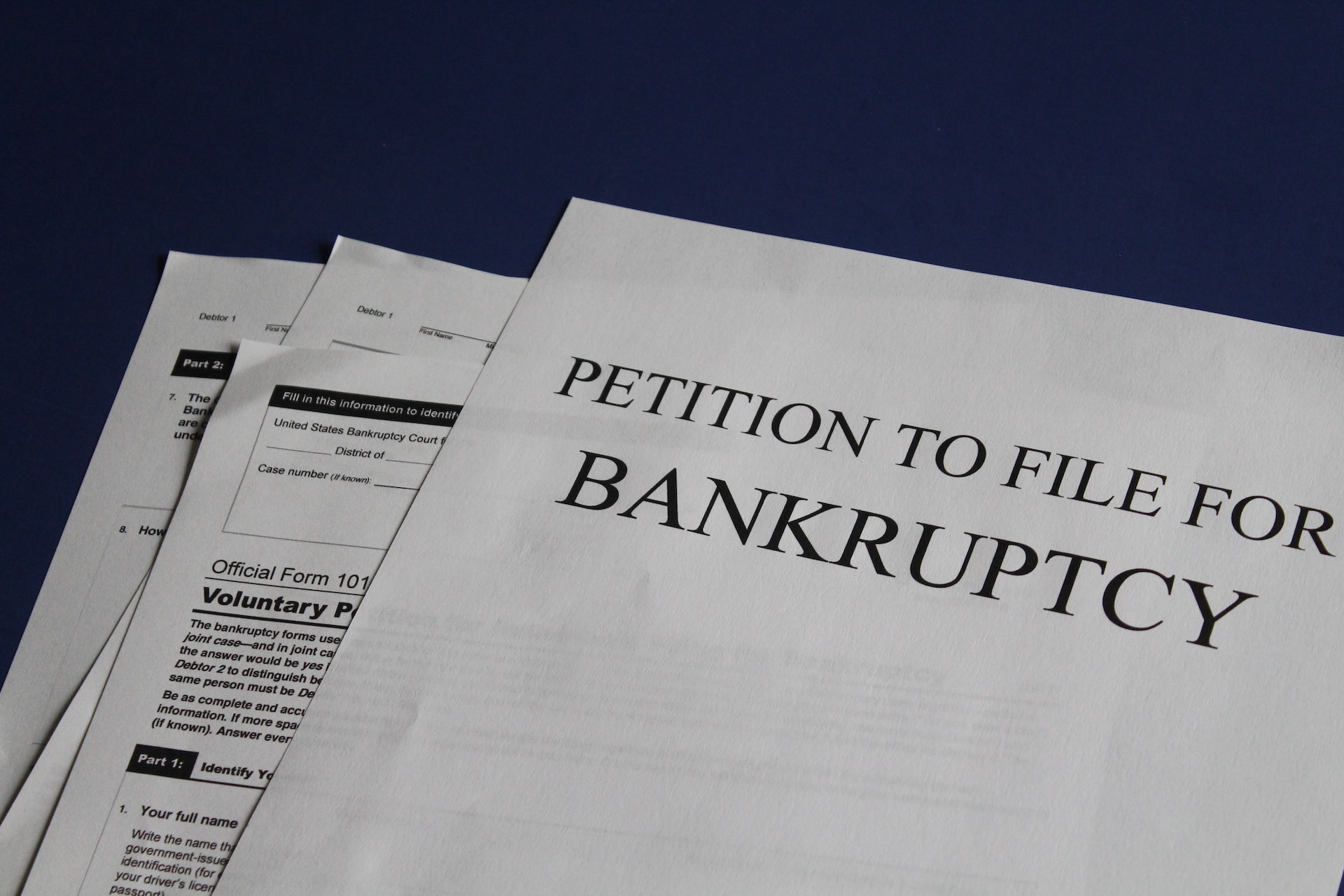Contents of this Post
ToggleFacing bankruptcy, personal or Corporate Bankruptcy can be an overwhelming and distressing experience. However, with the right legal strategies and guidance, it is possible to navigate this challenging terrain and emerge with a renewed financial life.
In this article, we will explore effective legal tactics to overcome bankruptcy and rebuild your financial future. By partnering with experienced professionals, such as Reeplaw attorneys, you can gain valuable insights and support throughout the process.

Seek Professional Guidance
Seeking professional advice is the first step in getting your financial life back on track after bankruptcy. Consult with a reputable bankruptcy attorney who can assess your situation, provide personalized advice, and guide you through the legal processes.
An experienced attorney can help you understand the implications of bankruptcy, explore alternative options, and devise a plan to rebuild your credit and finances. Commercial litigation lawyers, specifically, be consulted depending on the nature of your bankruptcy, especially if it involves business debts or disputes. These specialists can handle cases that might affect your company and personal financial stability post-bankruptcy. A trusted financial advisor can also help.
By integrating the expertise of these professionals, you can create a comprehensive approach to overcoming the challenges of bankruptcy and set a solid foundation for your financial future. This could include everything from legal counsel to practical budgeting and financial education, ensuring that you are well-equipped to manage your finances effectively moving forward.
Create a Realistic Budget
One of the most crucial steps towards rebuilding your financial life is creating a realistic budget. Start by analyzing your income and expenses, prioritizing essential costs such as housing, utilities, and groceries.
Cut back on discretionary spending and identify areas where you can save money. Creating a budget will help you regain control over your finances and ensure that you’re living within your means.
Additionally, cutting back on discretionary spending and using budget apps can significantly aid in managing finances. This technology can help track spending, set and adhere to budgets, establish financial goals, and provide a comprehensive, easily accessible view of your finances, empowering you to live within your means and stabilize your financial future.
Ensure the app has a user-friendly interface, robust security, and fits within your budget. Consider using apps that offer trial periods to evaluate their functionality. Additionally, read user reviews and check for integration capabilities with other financial tools. This approach will help you find an app that best supports your financial recovery and management needs.
Rebuild Your Credit
Rebuilding your credit is a vital aspect of post-bankruptcy recovery.
Why?
A bankruptcy filing stays on your credit report for a significant period, typically seven to ten years, depending on the type of bankruptcy. During this time, potential lenders and creditors will evaluate your credit history to determine your creditworthiness.
By rebuilding your credit, you increase your chances of obtaining credit in the future, such as loans, credit cards, or a mortgage. Reestablishing a positive credit history shows lenders that you are responsible and capable of managing debt.
Begin by obtaining a copy of your credit report from all three major credit bureaus (Equifax, Experian, and TransUnion) and review it for accuracy. Dispute any errors you find to ensure your credit report reflects accurate information.
To rebuild your credit, consider the following strategies:
- Secured Credit Cards: Apply for a secured credit card that requires a deposit as collateral. Make regular, timely payments, and keep your credit utilization low to demonstrate responsible credit behavior.
- Timely Bill Payments: Pay all your bills, including utilities, rent, and any other outstanding debts, on time. Consistent and timely payments will gradually improve your credit score.
- Responsible Borrowing: If you need to borrow money, consider small loans or credit lines and make sure to repay them promptly. This will demonstrate your ability to manage debt responsibly.
Still in doubt? You can also seek legal help to repair your credit. There are numerous attorneys who could help you repair your credit such as San Diego Credit Repair Attorneys etc. They are just a Google search away.
Embrace Financial Education
There are numerous resources available to help you expand your financial knowledge. Start by exploring reputable websites, books, podcasts, and online courses that focus on personal finance and rebuilding after bankruptcy.
Look for resources that cover topics such as budgeting, debt management, credit repair, investing, and long-term financial planning. Take advantage of free resources provided by government agencies, nonprofit organizations, and financial institutions, which often offer educational materials and workshops specific to post-bankruptcy recovery.
Many communities and organizations host financial workshops and seminars designed to educate individuals on various aspects of personal finance. Seek out local events or webinars that cover topics such as budgeting, credit repair, debt management, and financial goal-setting. These workshops often feature expert speakers who can provide valuable insights and practical advice tailored to your specific financial needs.
Build an Emergency Fund
Creating an emergency fund is crucial to protect yourself from unexpected expenses and prevent future financial setbacks. Start by setting aside a small amount from each paycheck and gradually increase your savings over time.
Aim to build up your emergency fund to at least cover three to six months’ worth of living expenses. Having a safety net will provide peace of mind and help you avoid resorting to credit or accumulating debt in case of emergencies.
Think about the following advice to assist you in getting started:
Set Clear Savings Goals: Determine how much you want to save for your emergency fund. Aim to save enough money to cover your living expenses for at least three to six months. Start with smaller milestones and gradually work your way up to your target amount.
Create a Realistic Budget: Evaluate your income and expenses to identify areas where you can save money. Trim unnecessary expenses and prioritize your savings goals. Allocate a specific amount from each paycheck towards your emergency fund and make it a non-negotiable part of your budget.
Automate Savings: Set up an automatic transfer from your paycheck or checking account to a separate savings account dedicated to your emergency fund. By automating your savings, you can secure regular payments without giving in to the want to spend the money elsewhere.
Save Windfalls and Bonuses: If you receive unexpected windfalls such as tax refunds, work bonuses, or cash gifts, resist the urge to spend them impulsively. Instead, allocate a portion or the entirety of these windfalls towards your emergency fund to accelerate its growth.
Increase Income: Seek out chances to boost your revenue. Think about working a part-time job, freelancing, or making money from a passion or talent. Any additional income can be directed towards building your emergency fund faster.
Seek Alternative Sources of Income
Boosting your income through additional sources can accelerate your financial recovery. Consider taking on a part-time job, freelancing, or monetizing a hobby or skill. Increasing your income will provide more financial stability, expedite debt repayment, and allow you to rebuild your financial life more effectively.
Conclusion
Winning the battle of bankruptcy requires patience, perseverance, and a strategic approach. By seeking professional guidance, creating a realistic budget, rebuilding your credit, embracing financial education, building an emergency fund, and seeking alternative sources of income, you can gradually rebuild your financial life and regain control over your economic well-being. Remember, bankruptcy is not a permanent label but an opportunity for a fresh start. With determination and the right legal strategies, you can successfully overcome bankruptcy and pave the way towards a brighter financial future.

